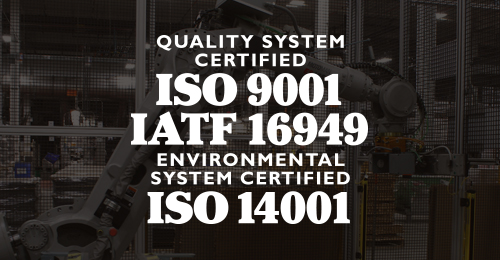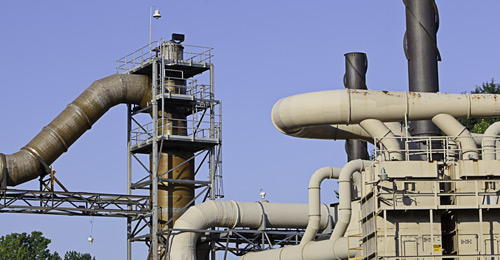Almost every day East Penn Product Support and the Deka Motive Power Sales and Service Network conduct power studies to help provide more clear solutions for customers and prospects’ operational struggles. The following is just one example of what our team can provide to you and your operations. These are results of a recent power study of a fleet not using Deka batteries, with recommendations delivered to the prospect for implementation.
THE BACKGROUND & CHALLENGE
Operations at grocery stores never stop moving, there is always product to stock, package, or unload. This can be taxing to both the lift truck and batteries when considering the different temperature locations, such as coolers and freezers, where products are stored. If the trucks and batteries aren’t properly sized, charged, and conditioned, these temperature changes can hinder the batteries’ lives and the efficiency of day-to-day operations.
A regional grocery giant with a 200-battery fleet was experiencing persistent issues with their current batteries and needed help. Their fleet was failing before their expected end of life, leaving the customer struggling to keep shelves stocked and ultimately frustrated. This operational failure was disrupting efficiency, forcing the customer to spend additional time changing batteries or trucks taking unnecessary detours to the battery/charging room. Ultimately, their productivity was being compromised and costing them revenue in consumer sales. East Penn’s Product Support and the Deka Motive Power Sales & Service Network conducted the necessary assessments to highlight areas in need of improvement and solutions for the operations.
THE CLEAR SOLUTION FOUND
To start, a site visit was needed to determine the root cause and begin developing a solution. The evaluation was conducted by members of the Deka Motive Power Sales & Service Network, the largest independently owned and exclusive network in North America. After this analysis, data revealed improvements were needed in batteries, charging regimes, and temperature management.
SPECIFIC AREAS HIGHLIGHTED FOR IMPROVEMENT
Following the power study by the Deka Network and East Penn Product Support, they discovered that improved operational performance would be reached in the following areas:
Temperature Fluctuations –
The consistent movement of the customer’s batteries from refrigerated to non-refrigerated warehouses and vice versa, provided the need for extra support to these batteries. To combat some past battery failures the customer had due to the changes in temperature, the experienced engineering team at East Penn proposed the idea of customized batteries. This would include added insulation on the ends to help mitigate premature battery failures and reduce additional maintenance extending life and improving overall performance.
Opportunity Charging –
The team recommended a change to opportunity charging. Prior to this change, the customer’s charging set up consisted of long trips and long lines with operators waiting for battery changes. The switch to opportunity charging optimizes recharges and help to reduce battery change frequency, along with reducing the number of batteries needed to power their fleet and overall lift trucks needed. This increases productivity and lowers CapEx. Battery data devices with temperature compensation features also optimize the battery recharges and facilitate fleet management through cloud-based data collection, extended battery life, and lower overall costs.
Charging Efficiencies –
To ensure total operational success, the team made sure to check and review all onsite chargers and algorithm regimes. This review presented data that suggested the batteries were not being fully charged, and several chargers had different preset regimes. These signs would prompt adjusting charger termination algorithms to restore the batteries to full charge and to have the local Deka representative test each charger for full and correct start, finish, and weekly equalizing. These adjustments lessen the impact of cell-to-cell variances, extending day-to-day performance and overall shift and service life of the batteries. This type of change would have a major impact on the operations and battery life. The customer was only getting about three years out of their batteries, but with the new regime could see battery life extended to five years.
After a full-scale power study and in-depth analysis, all the findings revealed the premium Deka D-Series product was the recommended battery for the fleet. The Deka D-Series is durable and dependable for almost any motive power application and designed to be utilized in both conventional and opportunity charging operations. Partnered with the Deka PowerForce charger and calibrated to hybrid Partial State of Charge (PSoC) (opportunity charging), 20 percent longer life would be achieved for the batteries.
THE CONCLUSION
The hard work of the qualified and dedicated members of the Deka network resulted in key operational recommendations to improve battery life, overall productivity, and efficiency. East Penn and Deka batteries have the power portfolio for any power needed, making sure you have the right technology for your unique application. Deka batteries are a safe and reliable solution to help you reach your performance, sustainability, and cost goals. Call us today to learn how we can help you succeed.
Follow us on LinkedIn @ East Penn Manufacturing Co. Motive Power – https://www.linkedin.com/company/east-penn-motive-power
Contact: Chad Christ – cchrist@dekabatteries.com

